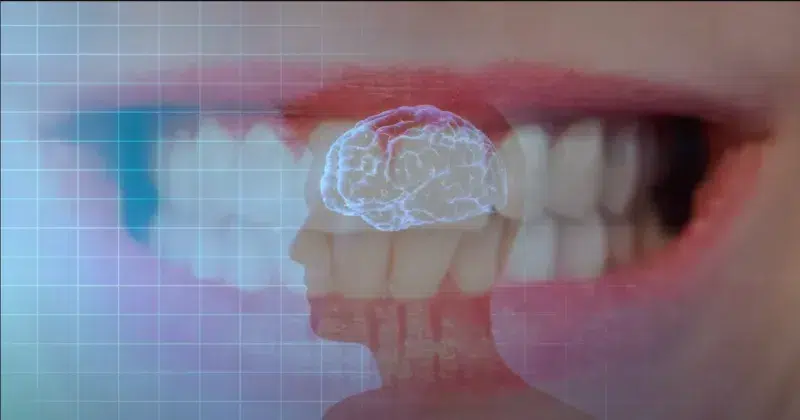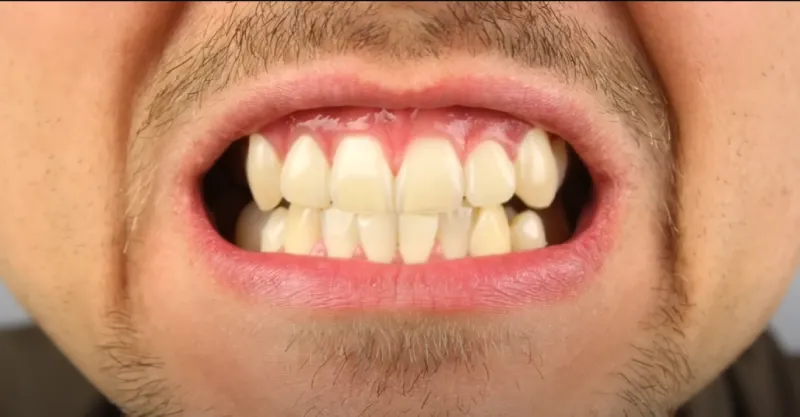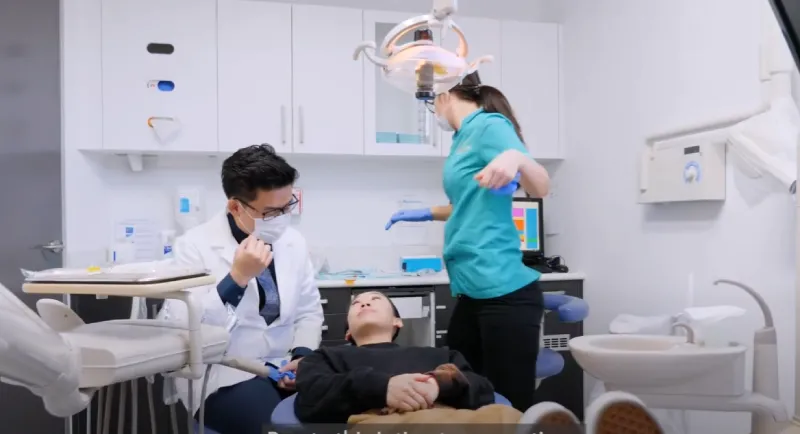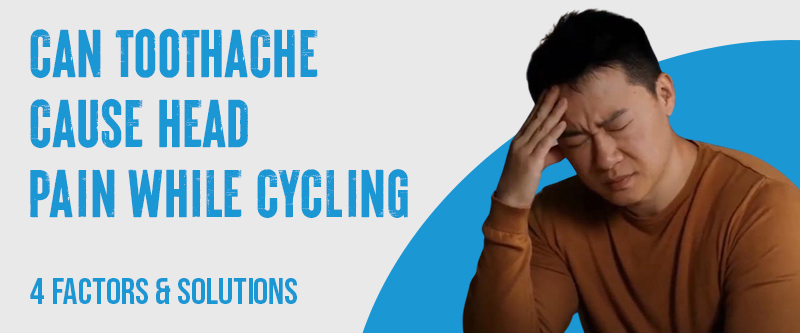Toothaches are usually caused by bacterial infections in the tooth or gums. Ignoring the pain or delaying treatment raises the risk of disease spread, possibly leading to severe issues like dental abscesses or infections.
Yes, toothaches can lead to head pain while cycling. If left untreated, tooth issues like cavities, cracks, or impaction can lead to migraines. Migraines are intense headaches often accompanied by vomiting, nausea, and sensitivity to light or sound.
This blog post will delve into the four factors that can lead to toothache-induced head pain while cycling and provide three tips for treating and preventing this discomfort.
Can A Toothache Cause Head Pain While Cycling? 3 Solutions

Cycling enthusiasts may encounter unforeseen discomfort during their rides, with toothaches and headaches standing out as significant issues. By comprehending these challenges and employing effective strategies to ease them, cyclists can elevate their overall riding experience.
Bruxism
Bruxism, clenching one’s jaw or grinding one’s teeth, can be a common issue for cyclists. This habit often becomes more pronounced during intense cycling sessions.
- Teeth Grinding: Grinding your teeth, especially during tough rides, puts extra pressure on your jaw muscles.
- Jaw Clenching: This is a natural reaction to stress, and the cycling tension can worsen it.
Both grinding and clenching can lead to muscle strain in the jaw and face, which may cause headaches. Cycling’s repetitive motion and high intensity can amplify this effect, making it essential for cyclists to manage stress and relax their jaw muscles during rides.
Dental Sensitivity and Exercise
Cycling can sometimes cause tooth pain because of physical exertion. This is especially true for cyclists with sensitive teeth.
- Tooth Pain from Exercise: The intense cycling effort can worsen tooth pain. Pushing yourself hard can trigger pain in already sensitive teeth.
- Gum Sensitivity: Sensitive gums can also play a role. If your gums are sore or irritated, the stress from cycling can lead to headaches.
Environmental Triggers
Certain environmental factors can make toothaches worse and lead to headaches while cycling.
Sugary Foods and Cold Water
- Sugary Foods: Eating sugary snacks or drinks during rides can cause tooth pain. Sugar can irritate cavities or sensitive teeth.
- Cold Water: Drinking cold water during a ride can also trigger pain. The sudden temperature change can make sensitive teeth hurt more.
Extreme Weather Conditions
- Hot Weather: High temperatures can increase discomfort and stress, worsening tooth pain.
- Cold Weather: Cold air can hurt teeth if they are already sensitive or damaged.
Poor Oral Health

Underlying dental problems can get worse during cycling, leading to headaches.
Exacerbation of Dental Issues
- Dental Problems: Issues like cavities, gum disease, or untreated infections can make riding more painful. Cycling puts a strain on the body and can exacerbate these problems.
- Pressure Changes: Intense physical activity can cause changes in blood pressure and circulation, which might increase pain in affected areas.
Abscessed Teeth and Headaches
- Abscessed Teeth: Abscesses are pockets of infection in the tooth or gums. Cycling can make this pain worse, causing it to throb.
- Throbbing Headaches: The pain from an abscess can spread and result in a throbbing headache, which can affect your overall performance and comfort on the bike.
Toothaches and Head Pain while Cycling: Treatment and Prevention Tips
Suffering from toothaches or head pain during cycling can be frustrating, affecting your ride and overall enjoyment. Discover effective treatments and preventive measures to ensure a smoother cycling experience. Prioritize your dental and head health for a more comfortable time on the bike.
Preventive Measures
Taking care of your teeth is key to avoiding toothache and headaches while cycling.
Maintain Good Oral Hygiene
- Brush and Floss Daily: Keeping your teeth clean can prevent dental problems. Brush twice a day and floss regularly.
- Use Mouthwash: Mouthwashes with antibacterial properties can prevent plaque buildup and keep your mouth healthy.
Regular Dental Check-ups
- Routine Visits: See your dentist at least twice a year. These check-ups can catch problems early before they become serious.
- Address Issues Promptly: If you notice any pain or discomfort, don’t wait. Get it checked out to prevent it from getting worse.
Managing Immediate Pain
Sometimes, tooth and head pain can strike when you least expect it. Here are some ways to manage the pain during your ride.
Recommended Products for Emergency Relief
- Pain Relievers: Carry over-the-counter pain medication like ibuprofen to help with sudden pain.
- Dental Wax: Keep dental wax in your kit to temporarily cover sharp edges or broken teeth.
- Mouthguard: A Mouth guard can prevent teeth from grinding and clenching during intense rides.
Long-term Solutions

To avoid toothache and headaches while cycling, it’s important to focus on long-term strategies.
Stress Management Techniques
Stress reduction can reduce the likelihood of bruxism (teeth grinding) and related pain.
- Relaxation Exercises: Practice deep breathing, meditation, or yoga to stay calm.
- Regular Breaks: Take short breaks during your rides to avoid building up tension in your jaw.
- Proper Sleep: Ensure you get enough restful sleep to reduce overall stress levels.
Diet and Hydration Tips
Eating and drinking can also impact your dental health and comfort during rides.
- Balanced Diet: Maintain a healthy diet by eating fruits, vegetables, and lean proteins.
- Avoid Sugary Foods: Reduce intake of sugary snacks and drinks that can cause cavities and dental pain.
- Stay Hydrated: Drink plenty of water, but keep it at room temperature to avoid triggering sensitivity.
By incorporating these long-term strategies into your routine, you can minimize the risk of toothache and headaches, making your cycling experience more enjoyable and pain-free.
Conclusion
Folks, the link between toothaches and head pain during cycling runs deeper than we think. Whether from teeth grinding or poor oral health, various hidden factors can cause discomfort during a ride.
But hang tight! We can tackle these obstacles with prevention, pain management, and lasting solutions while keeping that grin glowing.
Remember, cycling is all about the journey, not the ache! If discomfort persists, consult a dental professional. Keep those wheels (and pearly whites) in top-notch condition.
FAQs
How Do I Stop Tooth Pain Fast?
To relieve a toothache quickly, rinse your mouth with hydrogen peroxide, salt water, or wheatgrass. Then, apply clove oil, vanilla extract, or garlic paste to the affected area.
What Is The Best Way To Remove A Tooth At Home?
Tying a knot around a loose tooth with regular dental floss is the easiest way to remove it. Slide the loop to the gum line on both sides, then gently tug on the floss. If executed properly, the tooth should come out swiftly and painlessly.


